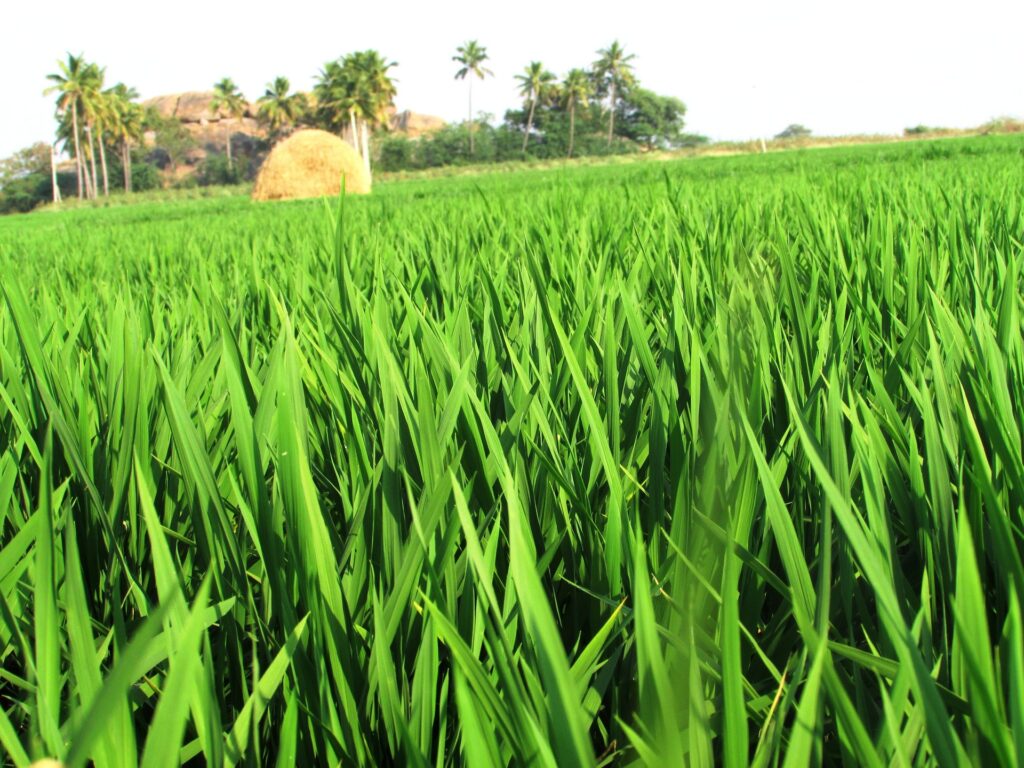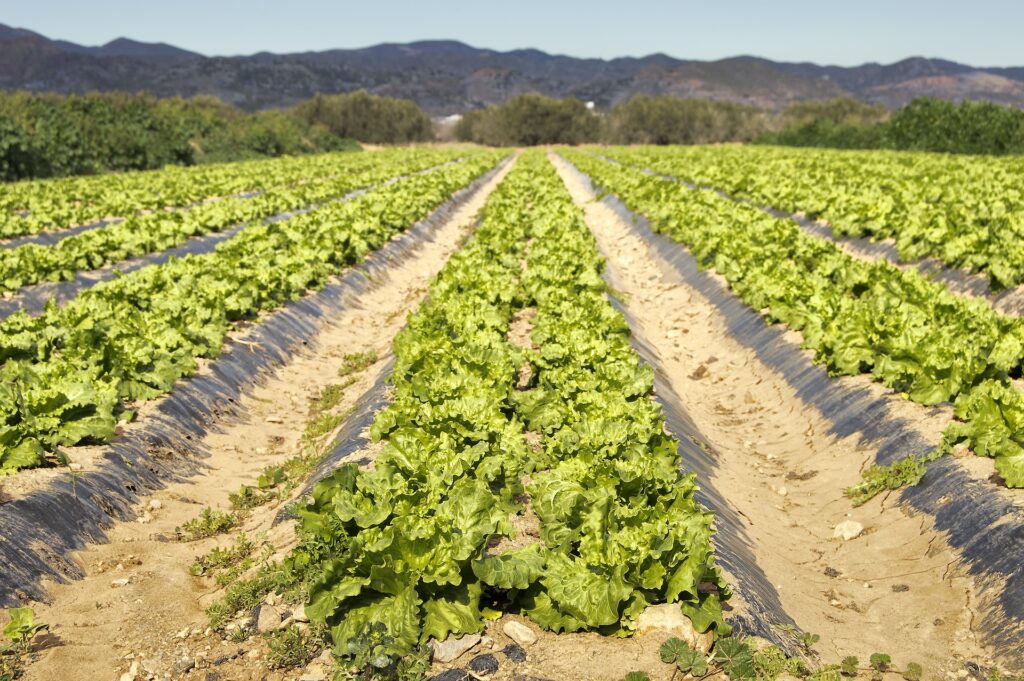Organic agriculture is emerging as a crucial part of sustainable farming in India, focusing on growing crops and rearing livestock without synthetic chemicals such as pesticides, fertilizers, and genetically modified organisms (GMOs). It emphasizes soil health, biodiversity, ecological balance, and environmental conservation, providing healthier food options and sustainable livelihoods for farmers.
India, with its rich tradition of natural farming, has seen a revival of organic farming practices in recent decades. As awareness about the harmful effects of chemical-intensive farming grows, consumers are increasingly turning to organic produce, creating a robust market for organic food in India and internationally.
This article explores organic agriculture in India, its benefits, challenges, and future potential, with an emphasis on its role in promoting sustainability and food security.

What is Organic Agriculture?
Organic agriculture is a holistic approach to farming that avoids the use of synthetic inputs such as chemical fertilizers, pesticides, herbicides, and GMOs. Instead, it relies on natural processes to enhance soil fertility, manage pests, and support plant growth. Organic farming methods include:
- Crop Rotation: Alternating crops to improve soil health and prevent pest infestations.
- Composting: Recycling organic waste materials to create nutrient-rich fertilizers.
- Biological Pest Control: Using natural predators, insects, or microorganisms to manage pests.
- Green Manure: Growing cover crops to enrich the soil with nutrients.
- Animal Husbandry: Rearing livestock with organic feed, natural breeding, and ethical practices.
Organic farming is regulated by standards that outline the production, processing, packaging, and labeling of organic products. In India, the National Program for Organic Production (NPOP) governs organic certification, ensuring that products labeled as organic meet stringent criteria.

The Growth of Organic Agriculture in India
India is one of the largest producers of organic food in the world, with over 2.78 million hectares of land under organic cultivation. The organic farming movement has grown significantly in the last two decades, driven by both government initiatives and consumer demand for healthier, chemical-free food.
The northeastern states, including Sikkim, Meghalaya, and Mizoram, have led the way in adopting organic farming practices. Sikkim, in particular, became the first fully organic state in the world in 2016, setting an example for other regions. States like Madhya Pradesh, Rajasthan, Maharashtra, and Uttarakhand have also embraced organic agriculture on a large scale.
India’s organic produce includes a wide range of crops such as fruits, vegetables, cereals, spices, tea, and cotton. Organic farming is practiced both by smallholder farmers and large agricultural enterprises, with a growing focus on export markets in Europe, the US, and other regions.
Benefits of Organic Agriculture

Environmental Sustainability
One of the primary advantages of organic farming is its positive impact on the environment. By avoiding chemical fertilizers and pesticides, organic farming reduces soil degradation, water contamination, and biodiversity loss. It enhances soil fertility through natural means, such as composting and crop rotation, which helps retain moisture and nutrients in the soil, making it more resilient to droughts and floods.
Healthier Food
Organic products are free from harmful residues of synthetic pesticides and fertilizers, making them healthier and safer for consumers. Studies have shown that organic foods often contain higher levels of vitamins, minerals, and antioxidants compared to conventionally grown produce. The absence of GMOs and chemical additives further boosts the nutritional value of organic food.
Economic Benefits for Farmers
Organic farming can lead to higher profits for farmers by offering premium prices for organic produce, both in domestic and international markets. Organic farming also reduces dependency on costly chemical inputs, lowering production costs over time. Farmers engaged in organic farming often experience improved soil health, leading to sustainable yields over the long term.
Soil Health and Biodiversity
Organic farming practices enrich the soil by improving its structure, increasing microbial activity, and promoting biodiversity. Techniques such as crop rotation, green manure, and cover cropping prevent soil erosion and help maintain soil fertility. The emphasis on natural pest control methods also encourages the proliferation of beneficial insects and microorganisms, leading to a balanced ecosystem.
Resilience to Climate Change
Organic agriculture enhances the resilience of farming systems to climate change by promoting practices that reduce greenhouse gas emissions and improve carbon sequestration in the soil. Organic farming systems are better equipped to handle extreme weather conditions, as the improved soil structure retains water during droughts and reduces erosion during heavy rains.
Reducing Dependence on Synthetic Inputs
Organic farming reduces the dependence on synthetic fertilizers, pesticides, and herbicides, all of which are energy-intensive to produce and often contribute to environmental degradation. By relying on natural alternatives, organic farming promotes a more sustainable use of resources and lowers the carbon footprint of agriculture.
Challenges in Organic Agriculture

Low Yields Initially
One of the main challenges in organic farming is the initial drop in yields when transitioning from conventional farming. The absence of synthetic inputs can lead to lower productivity in the short term, as the soil takes time to regain its natural fertility. However, with proper management, organic farms can achieve comparable yields to conventional farms in the long run.
High Certification Costs
Obtaining organic certification can be a lengthy and expensive process for farmers, particularly smallholder farmers. The certification process involves rigorous documentation and regular inspections, which can be difficult for farmers to afford or manage. The cost of organic inputs such as organic seeds, fertilizers, and pest control measures can also be higher than their chemical counterparts.
Limited Market Access
Although the demand for organic products is growing, many organic farmers in India face difficulties accessing markets that offer premium prices for their produce. A lack of organized supply chains, transportation, and storage facilities makes it challenging for small-scale farmers to reach consumers, particularly in urban areas.
Lack of Awareness and Training
Many farmers lack knowledge about organic farming practices and the benefits of organic agriculture. The transition from chemical-intensive farming to organic farming requires a shift in mindset, technical expertise, and access to resources. Without proper training and support, farmers may struggle to adopt and sustain organic farming methods.
Pest and Disease Management
Managing pests and diseases without synthetic chemicals can be challenging for organic farmers, especially in regions with high pest pressure. Organic pest control methods, such as biological control or the use of organic pesticides, require careful monitoring and may not always be as effective as chemical alternatives.

Government Initiatives and Support
Recognizing the potential of organic farming to promote sustainable agriculture, the Indian government has launched several initiatives to support organic farmers:
Paramparagat Krishi Vikas Yojana (PKVY): This scheme promotes traditional organic farming practices and provides financial assistance to farmers for organic inputs, training, and certification. It also encourages group certification to reduce costs for smallholder farmers.
Mission Organic Value Chain Development for North Eastern Region (MOVCDNER): Focused on the northeastern states, this scheme supports organic farming through value chain development, from production to marketing. It aims to enhance the income of organic farmers and promote the export of organic products from the region.
National Program for Organic Production (NPOP): NPOP is responsible for setting standards for organic production, certification, and labeling in India. The program ensures that organic products meet international standards, enabling farmers to access global markets.
National Project on Organic Farming (NPOF): NPOF promotes organic farming by providing training, research, and financial support for the development of organic farming practices. It also facilitates the development of organic input production units and the establishment of organic product markets.

Future of Organic Agriculture in India
The future of organic agriculture in India looks promising, with growing consumer demand, increased government support, and a rising awareness of the environmental and health benefits of organic food. As more farmers transition to organic farming, the focus will need to be on improving productivity, market access, and the affordability of organic inputs.
Technological advancements such as precision farming, organic input production, and improved pest management techniques can further enhance the viability of organic farming. Additionally, the development of organized supply chains, digital platforms for marketing, and financial incentives can help farmers access premium markets and earn higher incomes.

Conclusion
Organic agriculture represents a sustainable and environmentally friendly approach to farming that can address some of the key challenges facing Indian agriculture today. By promoting soil health, reducing chemical use, and producing healthier food, organic farming offers significant benefits for both farmers and consumers.
While challenges such as low yields, certification costs, and market access remain, government initiatives and technological advancements are paving the way for the growth of organic farming in India. As the demand for organic food continues to rise, organic agriculture will play a crucial role in shaping the future of sustainable farming in India.